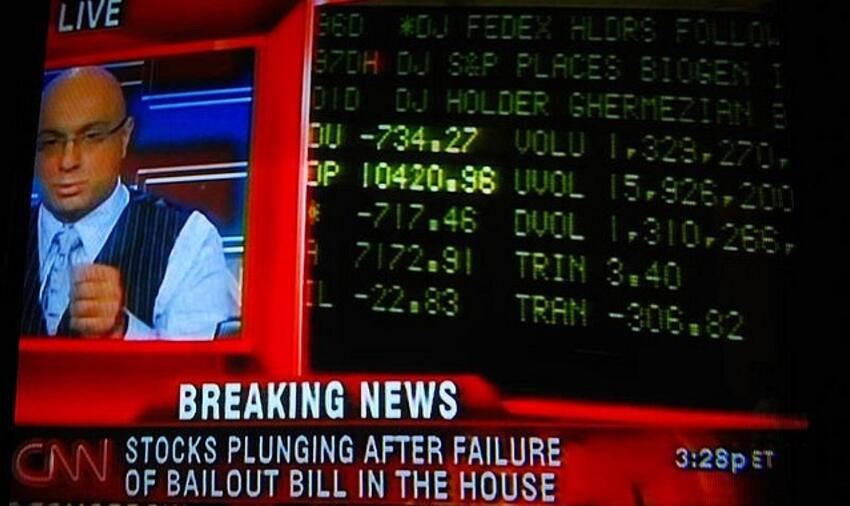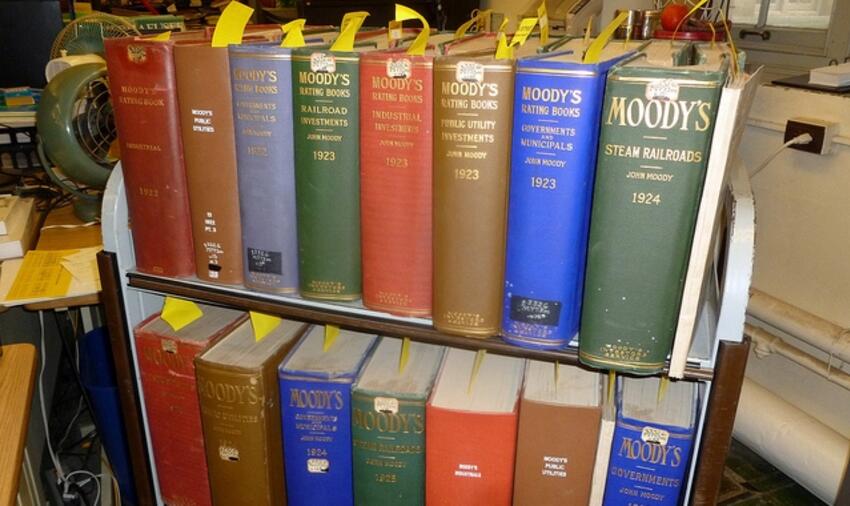Calculating and Governing Risk in Times of Crisis
Calculating and Governing Risk in Times of Crisis

 Witness to history - Photo : Faunggs, CC BY-ND 2.0
Witness to history - Photo : Faunggs, CC BY-ND 2.0
 Photo : Benjamin sTone, CC BY-NC-SA-2.0
Photo : Benjamin sTone, CC BY-NC-SA-2.0
Pierre Pénet soutient sa thèse lundi 24 novembre 2014 à 16h en salle Georges Lavau, 98, rue de l'Université, Paris 7e.
Calculating and Governing Risk in Times of Crisis: The Role of Credit Ratings in Regulatory Reasoning and Legal Change (1930s - 2010s)
Programme de double doctorat Sciences Po Paris et Northwestern University.
Jury :
- Olivier Borraz, directeur de recherches CNRS, Centre de sociologie des organisations, Sciences Po,
- Bruce Carruthers, John D. and Catherine T. MacArthur Chair and Professor of Sociology, Northwestern University (directeur de thèse),
- Louis Chauvel, professeur des universités et chercheur associé, Observatoire sociologique du changement, SciencesPo, et professeur de sociologie FNR-PEARL, Université du Luxembourg (directeur de thèse),
- Wendy Espeland, Professor of Sociology, Northwestern University,
- Michael Loriaux, Professor of Political Science, Northwestern University (rapporteur),
- Grégoire Mallard, Associate Professor of Sociology and Anthropology of Development, Graduate Institute of International and Development Studies, Geneva (rapporteur).
Située à l’articulation de la sociologie de l’économie, de l’histoire de la finance et de la sociologie de la connaissance, cette thèse présente une analyse du rôle de la notation du crédit dans la régulation financière, et plus largement, du rôle de l’incertitude et de l’incomplétude juridiques sur les anticipations économiques des acteurs financiers. La thèse rompt avec une lecture strictement intellectualiste de l’action publique et présente une approche de la régulation financière par ses instruments, empruntant ainsi l’approche pragmatiste développée par les social studies of finance et par la nouvelle sociologie économique d’inspiration américaine. L' hypothèse centrale de la recherche est que les instruments réglementaires sont à la fois des techniques de connaissance et des outils juridiques. Aussi, ce sont les frictions qu’occasionnent les deux activités parfois contradictoires de calculer et de gouverner qui donnent au changement réglementaire sa dynamique historique. Prenant l’exemple de l’usage de la notation dans la supervision financière comme dispositif de calcul et technique de gouvernement, la thèse propose une histoire de longue durée (1865-2010) de l’activité réglementaire sur les marchés financiers aux Etats-Unis et en Europe au travers de cinq régimes de régulation (régime statutaire, d’appel, disciplinaire, fictionnel et contractuel).
de la connaissance, cette thèse présente une analyse du rôle de la notation du crédit dans la régulation financière, et plus largement, du rôle de l’incertitude et de l’incomplétude juridiques sur les anticipations économiques des acteurs financiers. La thèse rompt avec une lecture strictement intellectualiste de l’action publique et présente une approche de la régulation financière par ses instruments, empruntant ainsi l’approche pragmatiste développée par les social studies of finance et par la nouvelle sociologie économique d’inspiration américaine. L' hypothèse centrale de la recherche est que les instruments réglementaires sont à la fois des techniques de connaissance et des outils juridiques. Aussi, ce sont les frictions qu’occasionnent les deux activités parfois contradictoires de calculer et de gouverner qui donnent au changement réglementaire sa dynamique historique. Prenant l’exemple de l’usage de la notation dans la supervision financière comme dispositif de calcul et technique de gouvernement, la thèse propose une histoire de longue durée (1865-2010) de l’activité réglementaire sur les marchés financiers aux Etats-Unis et en Europe au travers de cinq régimes de régulation (régime statutaire, d’appel, disciplinaire, fictionnel et contractuel).  L’originalité de la recherche est de combiner une approche macroscopique du changement réglementaire avec une approche méticuleuse de plusieurs courtes séquences historiques durant lesquelles d’importantes innovations réglementaires ont vu le jour, notamment le New Deal aux Etats-Unis et la crise de la dette souveraine en Europe. Ainsi, en plus de définir les contours de cinq régimes réglementaires, la thèse analyse la façon dont les régulateurs se sont saisis de la notation financière comme « mécanisme d’embrayage » afin d’opérationnaliser la transition d’un régime à un autre.
L’originalité de la recherche est de combiner une approche macroscopique du changement réglementaire avec une approche méticuleuse de plusieurs courtes séquences historiques durant lesquelles d’importantes innovations réglementaires ont vu le jour, notamment le New Deal aux Etats-Unis et la crise de la dette souveraine en Europe. Ainsi, en plus de définir les contours de cinq régimes réglementaires, la thèse analyse la façon dont les régulateurs se sont saisis de la notation financière comme « mécanisme d’embrayage » afin d’opérationnaliser la transition d’un régime à un autre.
Located at the intersection of economic sociology, financial history, and the sociology of knowledge, this dissertation examines the role of credit ratings in financial regulation, and more broadly, the role of financial uncertainties and legal incompleteness on financial actors’ anticipatory decisions. The framework set forth in this study can be summarized as follows. First, this study breaks with an intellectualist approach of public action to analyze financial regulation from the perspective of its instruments. As such, this research draws on a pragmatist agenda developed in social studies of finance and recent work in economic sociology. Second, the main hypothesis of this dissertation is to approach regulatory instruments as technologies of knowing and tools of government. From this double viewpoint, I hypothesize that the frictions generated by the two competing activities of calculating and governing impart the regulatory activity with both its structural features and historical dynamics. Third, using the example of regulatory reliance on ratings, I propose a longue durée historical analysis (1865-2010) of the regulatory activity in the U.S. and Europe through the examination of five regulatory regimes (statutory, appeal, disciplinary, fictional, and contractual). Four, one original feature of this dissertation is to combine a macroscopic analysis of regulatory change with a meticulous approach of several short historical sequences during which important regulatory innovations came into being, notably the New Deal in the U.S. and the European sovereign debt crisis. Thus, in addition to setting the contours of five regulatory frameworks, this dissertation analyses the ways in which regulators used ratings as “clutching” devices to operationalize the legal transition from one regime to another.
POUR EN SAVOIR PLUS












